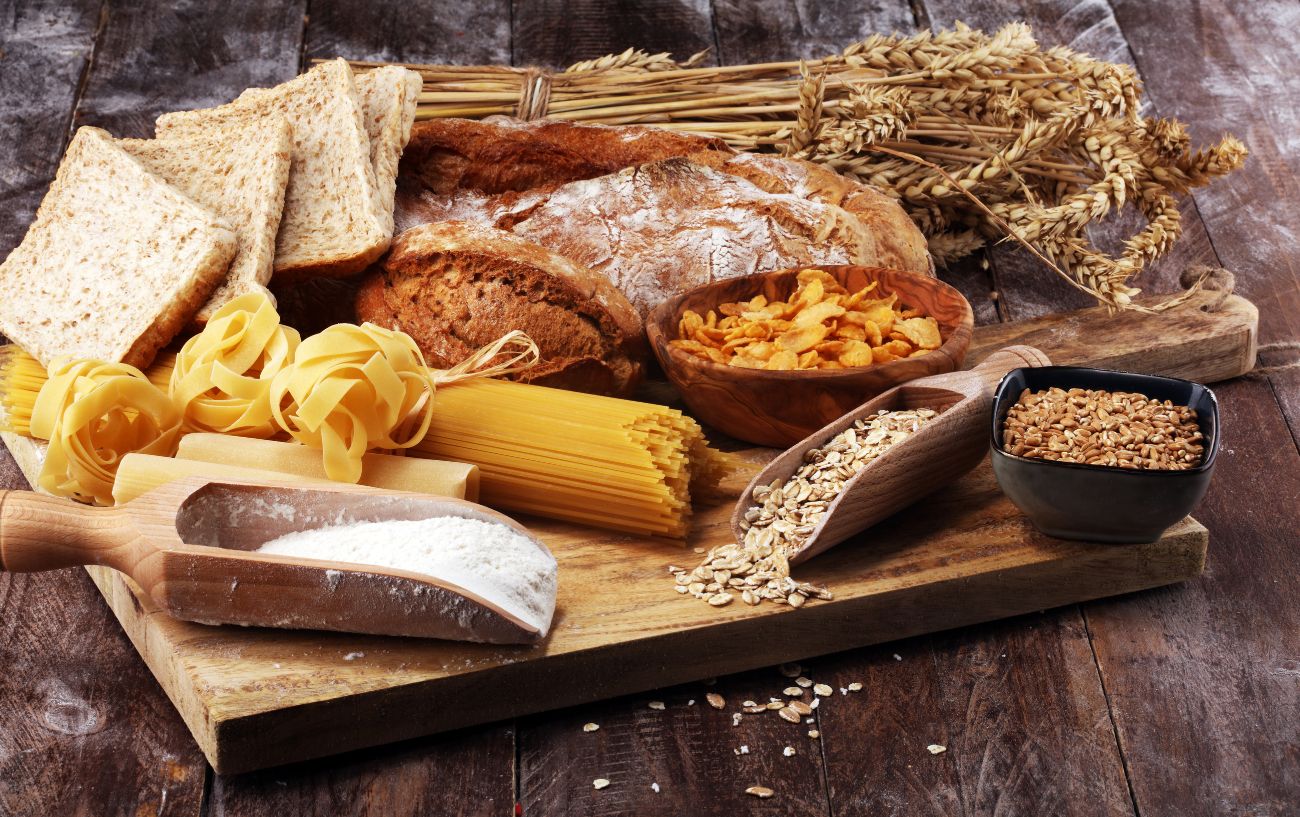Food provides us with the nutrients and energy we need to survive.
On a biochemical level, the foods we eat contain calories that provide the energy our cells need to carry out all their various processes, which should help us feel energized and full of vigor.
When you feel like you’re in a slump during the workday, there’s nothing like a nutritious lunch to revitalize you and give you a second wind for the afternoon at your desk.
But what if, instead of invigorating you, you feel tired after eating? Fatigue after eating carbs is a common complaint, with many people citing, “carbs make me sleepy.”
Whilst it is completely normal to feel some tiredness after a meal whilst your digestive system gets to work, if it is disruptive and triggered in particular by carbs, then it’s worth investigating further.
In this article, we will discuss reasons you may feel extreme fatigue after eating carbs.
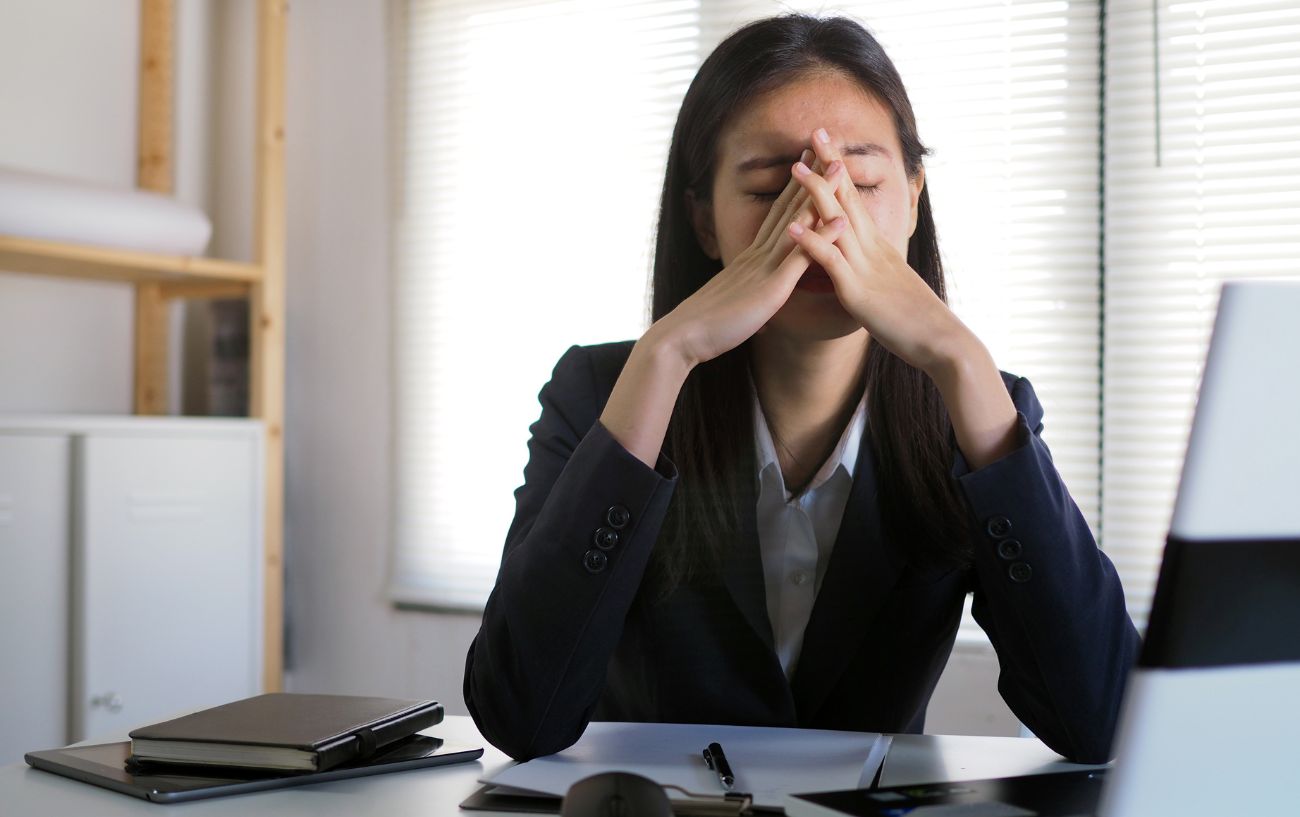
What Are Carbohydrates?
Carbohydrates are one of the three primary macronutrients, alongside fat and protein.
Carbohydrates are polymers formed by sugar molecules. Each gram of carbohydrate provides 4 kcal of energy.
Many people only think of grains when they think of high-carbohydrate foods, but there are plenty of other foods that contain lots of carbohydrates as well.
Examples of foods high in carbohydrates include bread, pasta, rice, tortillas, crackers, English muffins, bagels, couscous, quinoa, pilaf, whole grains, pastries, cereals, oatmeal, muffins, fruit, fruit juice, applesauce, dried fruit, granola bars, fruit snacks, legumes, potatoes, sweet potatoes, other tubers, corn, cookies, soda, and candy.

Do Carbs Make You Tired?
Despite having nearly identical genetic makeup, our bodies are all unique, and our biochemistry is unique.
For this reason, even within the same family, two different people may react to carbohydrates differently.
One person may find that eating carbohydrates gives them a boost of energy, while a sibling might find themselves regularly questioning why carbs make them sleepy.
So, why the difference?
Whether carbs energize you or make you feel sleepy or sluggish can depend on several factors, such as your personal biochemistry, what else you’ve eaten, and the types of carbs or foods you’ve eaten.

7 Reasons Why Carbs May Be Making You Tired
Let’s take a look at the various reasons why you might experience fatigue after eating carbs.
#1: Carbohydrates Increase the Production of Serotonin
Many people are familiar with the phenomenon of feeling a “food coma” after eating a big plate of turkey at Thanksgiving dinner.
Turkey contains high levels of an amino acid known as tryptophan, a substance that may cause feelings of tiredness.
Studies have shown that eating foods high in tryptophan increases the production of serotonin and melatonin and thus can induce sleepiness.1Bravo, R., Matito, S., Cubero, J., Paredes, S. D., Franco, L., Rivero, M., Rodríguez, A. B., & Barriga, C. (2013). Tryptophan-enriched cereal intake improves nocturnal sleep, melatonin, serotonin, and total antioxidant capacity levels and mood in elderly humans. Age, 35(4), 1277–1285. https://doi.org/10.1007/s11357-012-9419-5
Because serotonin can reduce anxiety and melatonin can help regulate sleep-wake cycles, consuming tryptophan may promote sleepiness.
While tryptophan is most well known for this sleepy side effect, foods high in carbohydrates have been shown to increase the production of serotonin as well, eliciting a similar response.2Wurtman, R. J., & Wurtman, J. J. (1995). Brain Serotonin, Carbohydrate-Craving, Obesity and Depression. Obesity Research, 3(S4), 477S480S. https://doi.org/10.1002/j.1550-8528.1995.tb00215.x
This is why you might be calmer, happier, and, yes, sleepier after eating carbs.
Moreover, some evidence suggests that consuming carbohydrates alongside tryptophan increases the absorption of tryptophan.
Therefore, some experts think that eating meals high in carbohydrates and protein together will leave you feeling tired.
It should be noted that, whilst tryptophan is associated with feelings of tiredness, post-thanksgiving dinner drowsiness may also very well be related to alcohol consumption and overeating.3Team, W. (2022, November 23). Does eating turkey make you sleepy? | Shine365 from Marshfield Clinic. Shine365. https://shine365.marshfieldclinic.org/wellness/sleepy-after-turkey/
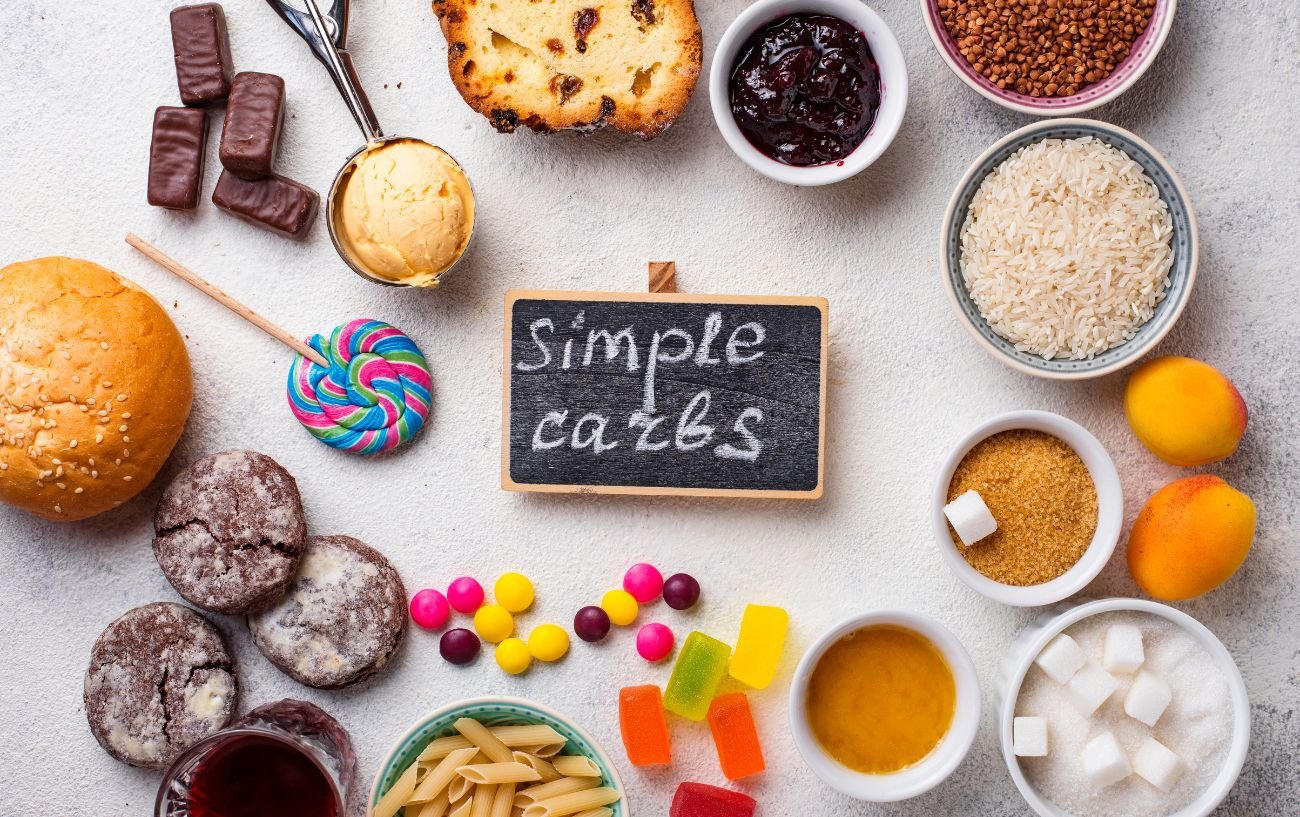
#2: Carbohydrates Affect Your Blood Sugar
Most people are aware that carbohydrates affect your blood sugar level.
Simple carbohydrates, also called refined carbohydrates, cause your blood sugar (glucose) levels to rise quickly because they are broken down very rapidly.
Unlike complex carbohydrates, which have to be disassembled into their constituent simple sugar molecules—a process that takes some time—simple carbohydrates are nearly ready to enter the bloodstream as is, so they can rapidly flood into circulation rather than trickle in slowly as they are broken down.
In response to this sudden increase, the pancreas secretes insulin, a hormone that signals the muscles and liver to take up the circulating glucose.
Blood sugar levels can then dip to levels below where they were before you ate, leaving you feeling drained of energy.
This is called postprandial reactive hypoglycemia.4Brun, J. F., Fedou, C., & Mercier, J. (2000). Postprandial reactive hypoglycemia. Diabetes & Metabolism, 26(5), 337–351. https://pubmed.ncbi.nlm.nih.gov/11119013/
If you are noticing a pattern of feeling fatigued after eating carbs, you should consult your doctor about getting your fasting blood sugar and hemoglobin A1c levels checked, as reactive hypoglycemia is a hallmark sign of insulin resistance, prediabetes, type 1 diabetes, or type 2 diabetes.
Other early signs of diabetes included increased hunger, thirst, and urination.

#3: You May Have Insulin Resistance Or Diabetes
With reactive hypoglycemia, the body is sensitive to insulin, but it’s almost like the insulin is too potent.
As a result, too much glucose is taken up by various tissues and cells in the body, so you ultimately end up with low blood sugar.
With insulin resistance, the opposite occurs.
Insulin resistance is a medical condition in which the pancreas produces and secretes insulin in response to the blood glucose levels rising after eating carbohydrates, as it normally should.
However, the cells and tissues of the body are virtually unresponsive to that insulin. In other words, insulin secretion does not trigger muscle cells and other cells in the body to take in the circulating blood glucose.
More and more insulin gets secreted to try and trigger glucose uptake, but the cells are not particularly responsive to it.
As a result of the excess insulin and the poor utilization of blood glucose, you can feel extremely tired or fatigued after eating carbs.
You may feel sleepy after eating carbs of any type, but refined carbohydrates (simple sugars) will be the biggest offenders.
Whilst you can have some insulin resistance and not be diabetic, insulin resistance can lead to prediabetes and type 2 diabetes.
Once a certain threshold of blood sugar levels is reached due to the body not being able to produce enough insulin, this is known as diabetes.5Diabetes UK. (2022, September 29). Insulin resistance. Diabetes UK. https://www.diabetes.org.uk/guide-to-diabetes/managing-your-diabetes/treating-your-diabetes/insulin/resistance
#4 Overeating
If you are consuming excessive carbs in a short period, or consuming large, carb-heavy meals, this can also lead to tiredness and fatigue.
As discussed, the serotonin released after the consumption of carbs and the increase in blood sugar levels both contribute to feeling tired after consuming carbs.
If you are eating too many carbs, then these effects are likely to be even more pronounced.
If you believe this may be the cause of your tiredness, it may be helpful to identify what is triggering the overeating. Speaking to a medical professional or registered dietitian can help with this, and they may suggest techniques such as portion control, mindful eating, exercise, and stress management.
#5: Inadequate Sleep
Chronic sleep deprivation or poor-quality sleep can leave you feeling tired after eating any type of food, including high-carbohydrate meals and snacks.
Although you will likely feel fatigued at any point of the day, when you are overtired and need more sleep, you will likely feel particularly sleepy after eating because when the body is relaxed and full, it’s even easier to nod off.
Having a regular circadian rhythm (meaning you wake up and go to the bed at the same time every day) can go a long way towards improving your sleep quality.
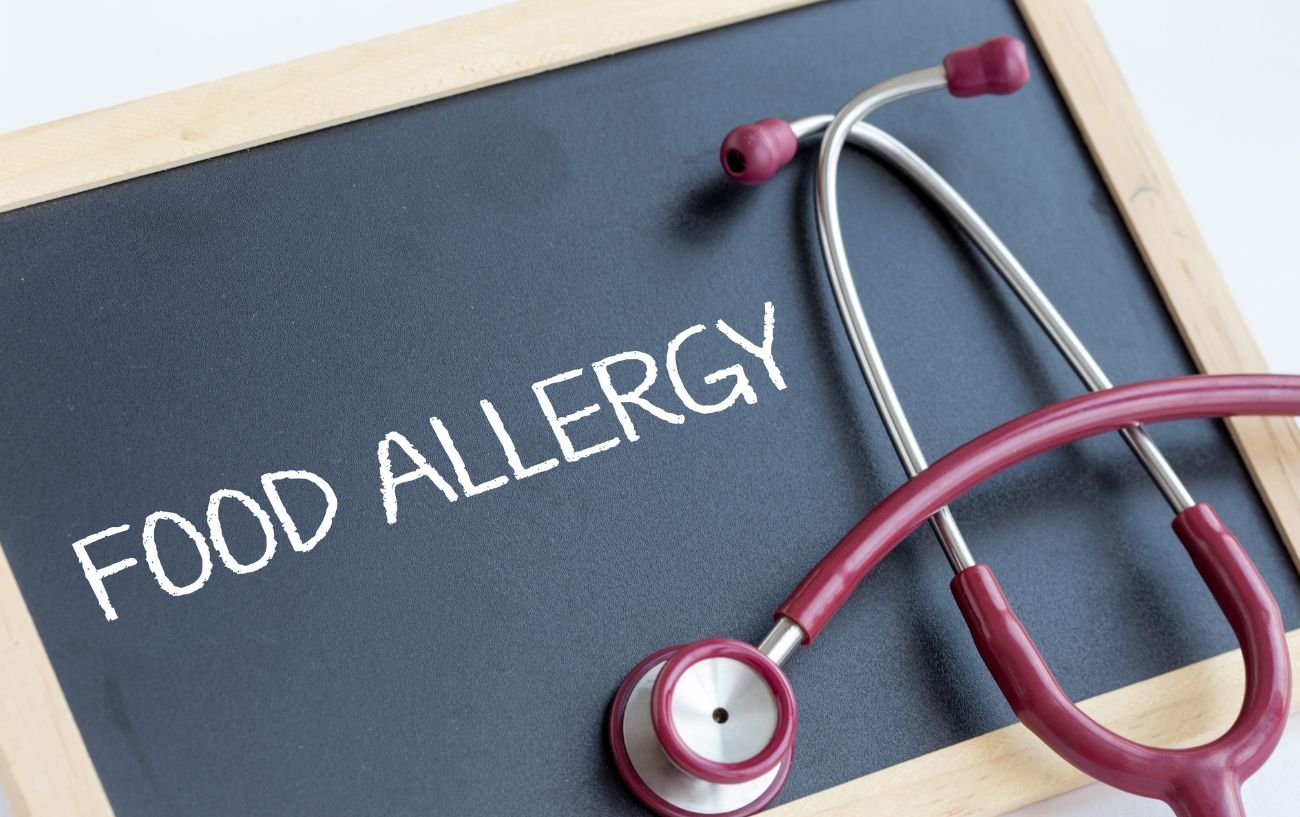
#6: Food Intolerances and Food Allergies
One of the common signs of food intolerance or food allergy can be feeling tired after eating.
Therefore, if there’s a high-carbohydrate food that you’re reactive to, you might feel sleepy after eating it.
This is due to the fact that the body produces histamines after eating foods you are allergic to or sensitive to.6Shulpekova, Y. O., Nechaev, V. M., Popova, I. R., Deeva, T. A., Kopylov, A. T., Malsagova, K. A., Kaysheva, A. L., & Ivashkin, V. T. (2021). Food Intolerance: The Role of Histamine. Nutrients, 13(9), 3207. https://doi.org/10.3390/nu13093207
Histamines can increase the feeling of drowsiness, leaving you feeling fatigued after eating.
For example, if you’re sensitive to nightshades (a group of vegetables that includes foods like tomatoes, eggplants, and potatoes), you might feel tired after eating potatoes or potato-based foods.
Another thing to consider is that you might be sensitive to a food you’re pairing with a high-carbohydrate meal or snack and incorrectly attribute the postprandial fatigue to the carbs rather than the real offender.
For example, if you eat banana walnut pancakes and are unknowingly intolerant to tree nuts, you might feel sleepy after eating breakfast.
However, rather than the fatigue having anything to do with the carbohydrates in the pancakes, it would be due to the histamine response to the walnuts.
Food allergy or sensitivity testing can help you identify your trigger foods.
#7: Celiac Disease Or Gluten Intolerance (NCGS)
If you are feeling tired or fatigued after eating carbs, particularly foods containing grains of wheat, rye, and barley, you may have undiagnosed celiac disease or non-celiac gluten sensitivity.
Celiac disease is an autoimmune disease that involves an allergy to gluten, a protein found in wheat, rye, and barley, among many other processed foods.
In addition to fatigue after eating gluten, other signs of celiac disease include bloating, diarrhea, weight loss, and gas.
Gluten intolerance, also known as non-celiac gluten sensitivity (NCGS), is a condition with similar symptoms resulting from gluten consumption, however, its causes are not fully understood, and some who are diagnosed with it can consume small amounts of gluten, as opposed to those with celiac disease who can consume none.7Medicine, N. (n.d.). Celiac Disease vs. Gluten Intolerance (Infographic). Northwestern Medicine. https://www.nm.org/healthbeat/healthy-tips/celiac-disease-vs-gluten-intolerance-infographic#:~:text=%E2%80%9CCeliac%20disease%20is%20an%20autoimmune
Either way, both conditions can leave you feeling short on energy after consuming carbs containing gluten, and can be diagnosed through a blood test.
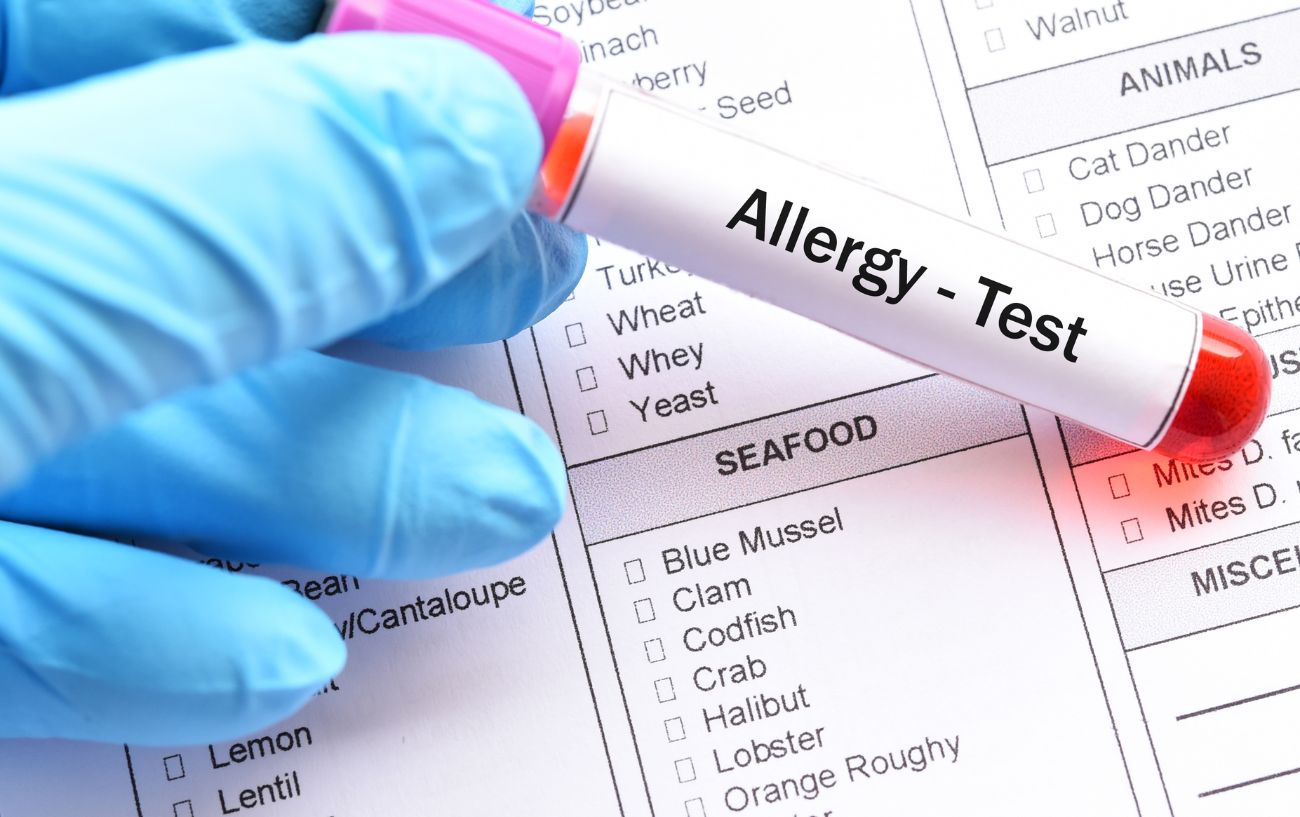
What to Do If You Feel Fatigue After Eating Carbs
If you are noticing you are routinely feeling tired after eating carbs, it’s important to investigate the underlying reasons with your healthcare provider.
If you’re concerned about reactive hypoglycemia or insulin resistance, or if you have already been diagnosed with insulin resistance or type 2 diabetes, speak with your healthcare team about treatment and how to best manage your blood sugar and insulin levels for optimal energy.
If you think you may have celiac disease or a gluten intolerance, discuss testing with your healthcare provider, remove all gluten from your diet, or consider food sensitivity testing.
If you feel like you are getting enough sleep (at least 7-9 hours per night) but never feel well-rested when you wake up, consider getting a sleep study to look for signs of sleep apnea or other sleep disorders.8Watson, N. F., Badr, M. S., Belenky, G., Bliwise, D. L., Buxton, O. M., Buysse, D., Dinges, D. F., Gangwisch, J., Grandner, M. A., Kushida, C., Malhotra, R. K., Martin, J. L., Patel, S. R., Quan, S., & Tasali, E. (2015). Recommended Amount of Sleep for a Healthy Adult: A Joint Consensus Statement of the American Academy of Sleep Medicine and Sleep Research Society. Sleep, 38(6), 843–844. https://doi.org/10.5665/sleep.4716
Finally, if you are asking yourself why carbs make you sleepy, consider the type and quantity of carbohydrates that you are eating.
When you eat refined carbohydrates, such as those found in white bread, pasta, bagels, crackers, cookies, juice, and processed breakfast cereals, the blood sugar response is rapid, leading to postprandial reactive hypoglycemia.
Focus on getting fiber, protein, and healthy fats alongside low-glycemic carbohydrates (also known as complex carbs) to provide a slower release of glucose.9Better Health Channel. (2012). Carbohydrates and the glycaemic index. Vic.gov.au. https://www.betterhealth.vic.gov.au/health/healthyliving/carbohydrates-and-the-glycaemic-index
You can take a look at some of the most healthy carbohydrate sources for you in our guide, Best Carbohydrate Sources For Runners.
